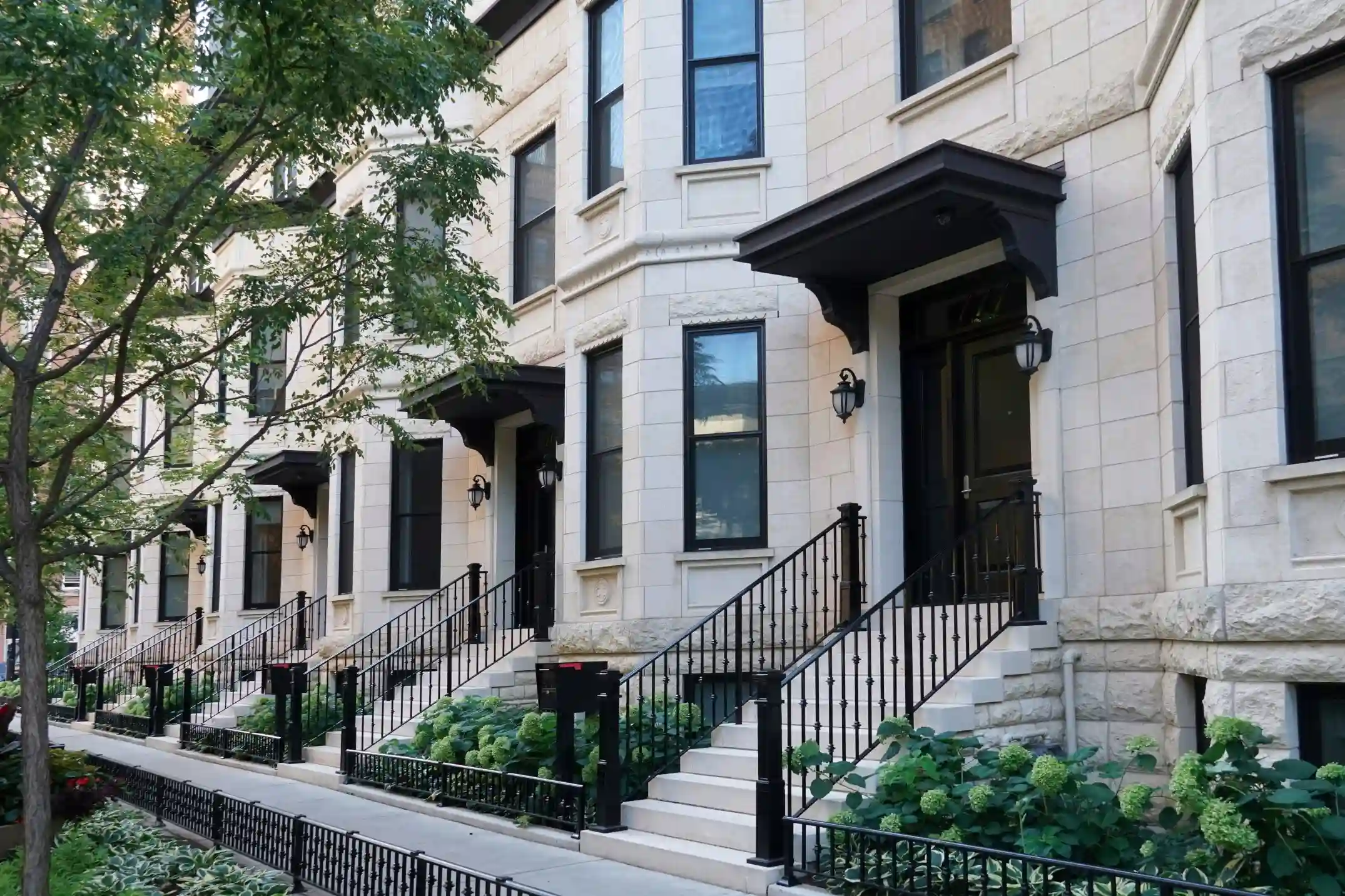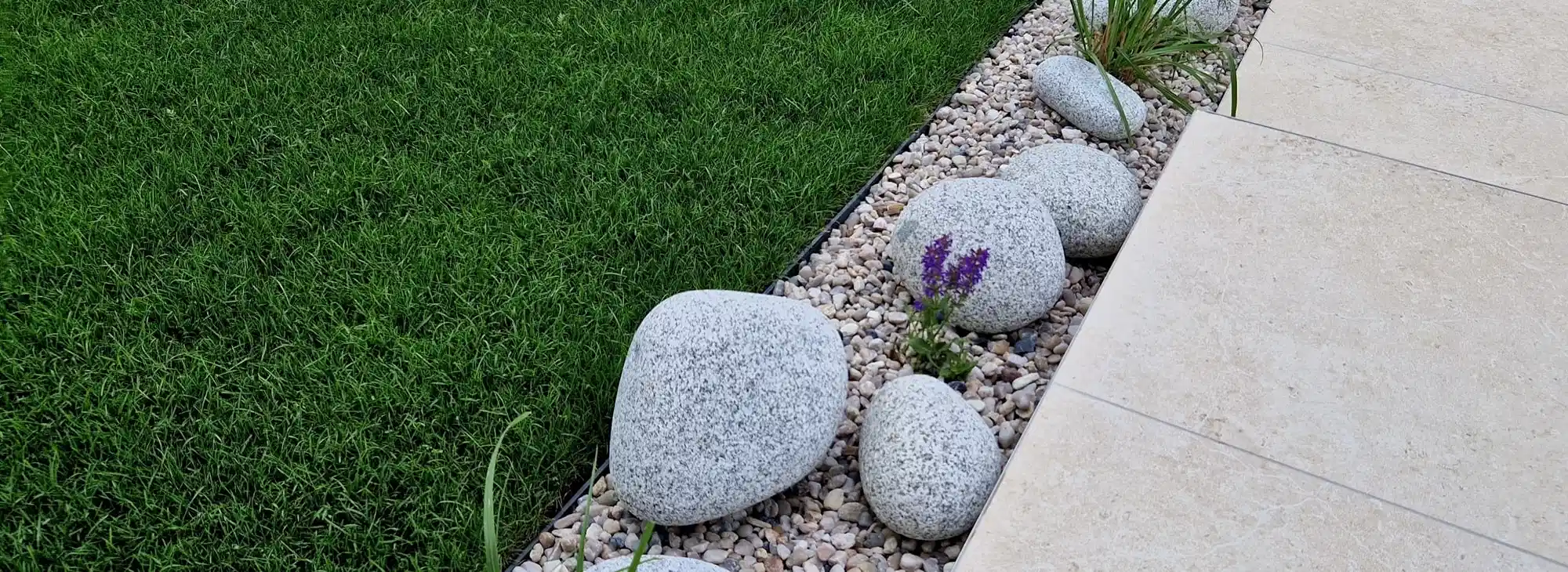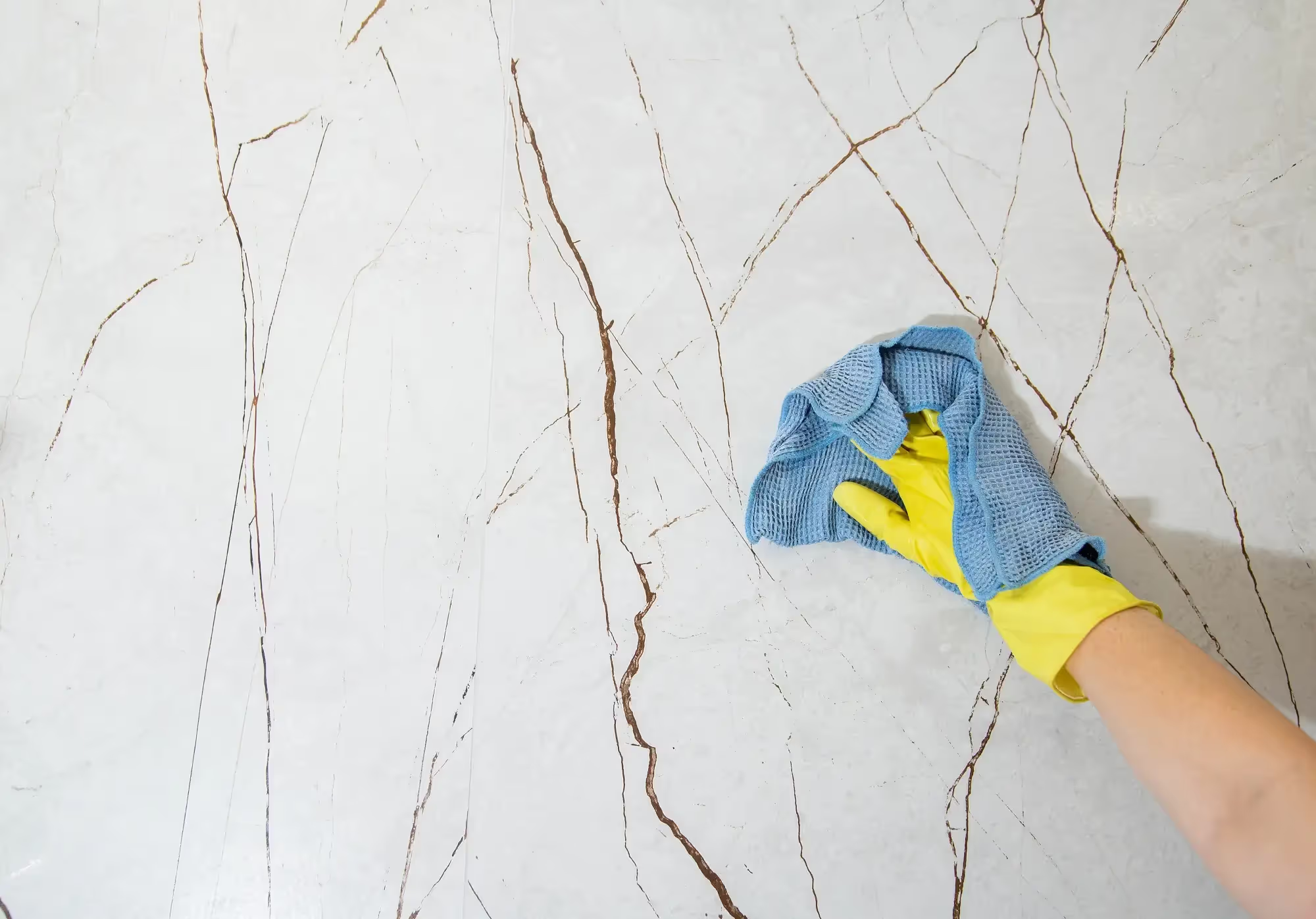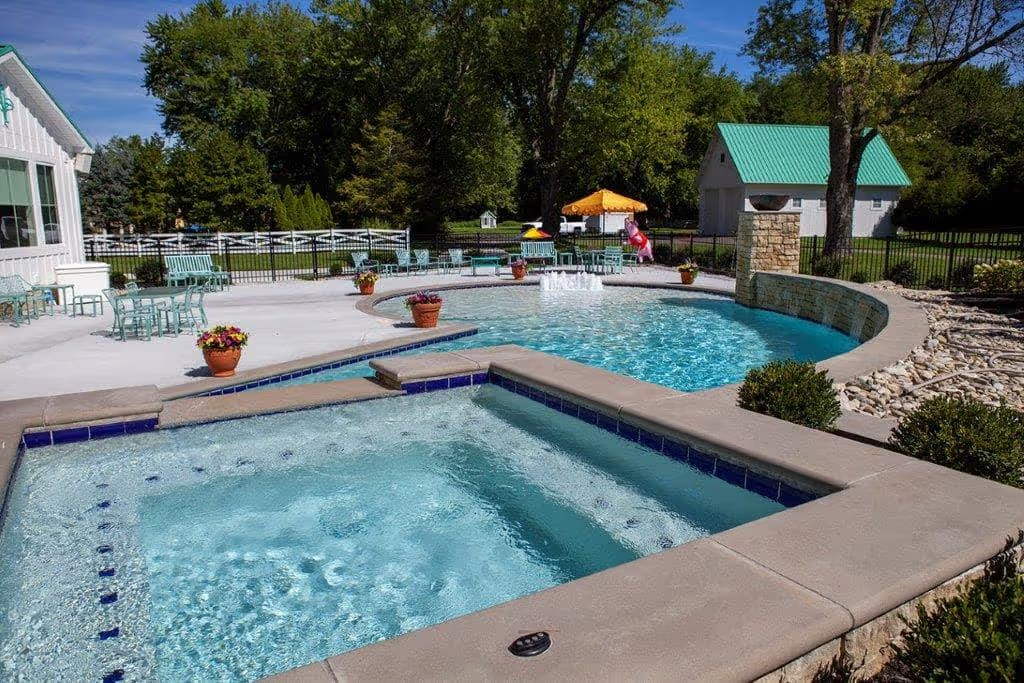- Stone Center
- Blog
Choosing the Best Stone for Your Outdoor Kitchen
8/5/2025
9/27/2024
Choosing the Best Stone for Your Outdoor Kitchen

Have you considered building an outdoor kitchen but don't know how to choose the best stone surface? Don’t worry, our experts at Stone Center have prepared some tips for selecting the best stone for an outdoor kitchen.
We'll walk you through some of the most popular stone choices for outdoor kitchens, discussing their pros and cons, cost considerations, and how to find the perfect match for your style and needs. Whether you're looking for a classic, elegant look or something more rustic and earthy, at Stone Center we'll help you find the perfect stone to create an outdoor kitchen. Before diving into specific stone options, let’s cover some top tips for selecting the ideal stone for your outdoor kitchen.
Top Tips for Choosing the Ideal Stone for Your Outdoor Kitchen
When selecting the best stone for your dream outdoor living space, it's important to think about durability, aesthetics, and maintenance. Here are some key tips to help guide your decision:
- Consider the climate: If you live in an area with harsh winters or scorching summers, you'll want a stone that can withstand temperature fluctuations without cracking or fading.
- Think about maintenance: Some stones require regular sealing to protect them from stains and moisture. If low maintenance is a priority, opt for stones as they’re more stain and scratch-resistant and easier to clean.
- Match the aesthetic: Each stone has its own unique appearance. Choose a stone that complements the look and feel of your outdoor space.
- Set a budget: Different stones vary greatly in price. Be sure to balance your desire for a beautiful, highly durable material with what fits within your budget.
With these factors in mind, let's take a closer look at how some of the most popular stone options stack up when it comes to durability, aesthetic appeal, and maintenance needs.
Now, let’s dive deeper into the specifics of each stone and find the perfect match for your outdoor kitchen needs!
Quartzite
Quartzite is a luxurious and durable natural stone that adds a touch of elegance to any indoor countertops. It's known for its stunning beauty, with variations in color and veining, making it a popular choice for those seeking a high-end look. However, it's also more expensive than other options on our list.
Pros:
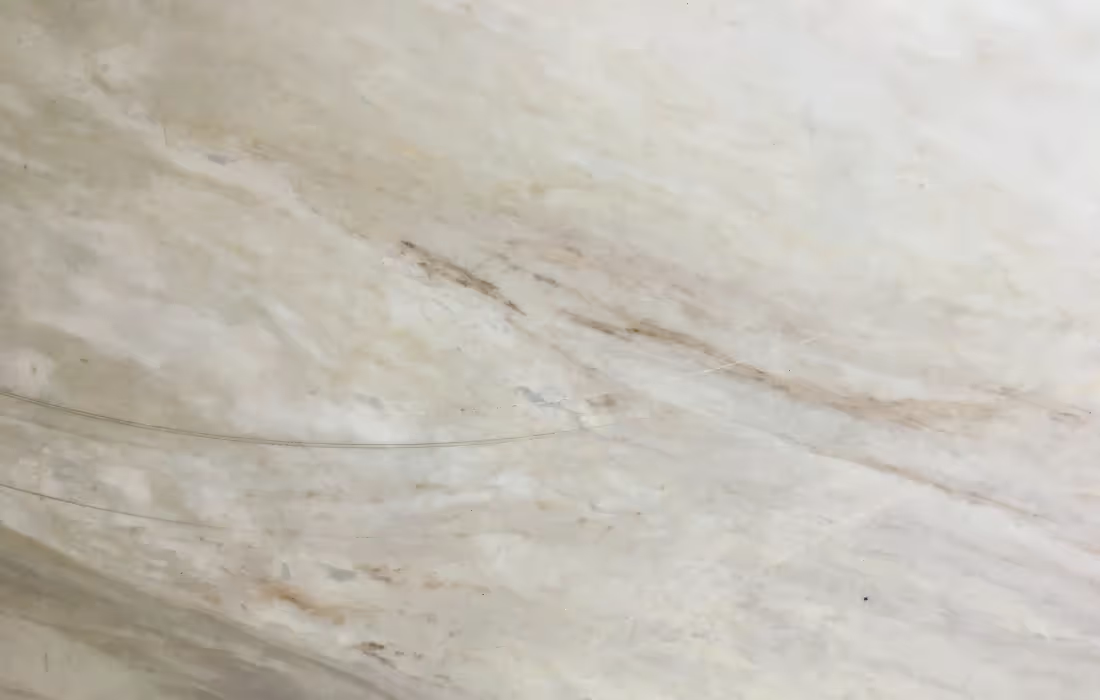
- Extreme durability: Incredibly resistant to scratches, high temperatures, and stains, making it ideal for outdoor kitchens.
- Beautiful aesthetics: Comes in various colors and patterns, adding a unique touch to your design.
- Low maintenance: Relatively easy to clean and maintain.
Cons:
- High cost: Pricy, so it might not be the most budget-friendly choice.
- Potential for fading: Can fade over time due to prolonged exposure to sunlight.
Granite
Granite is the most popular outdoor countertop material because of its durability and aesthetic appeal. However, while this material makes great outdoor granite countertops, it's not the best option for all outdoor kitchen elements.
Pros:

- Durability: Highly resistant to scratches, heat, cold stains, and direct sunlight. Just ensure you select a variety with a low absorption rate for better results.
- Wide variety: Comes in a vast range of colors and patterns to suit any style.
- Easy to clean: Relatively easy to maintain with regular cleaning.
Cons:
- High cost: Price can vary significantly depending on the type and origin.
- Not ideal for all elements: Porous nature makes it susceptible to staining and etching, especially in areas with direct exposure to moisture and weather. It's best suited for countertops, not for everything in your outdoor kitchen.
Limestone
If you're looking for a classic outdoor countertop material, you should take a look at our limestone products. Limestone, with its rich history and elegant appearance, is a solid choice for outdoor kitchens. This natural stone offers excellent resistance to weather and wear, making it a practical and beautiful option for your outdoor space.
Pros:

- Natural beauty: Comes in a range of warm colors and textures, adding a rustic charm to your outdoor kitchen.
- Durability: Strong and durable stone that can withstand harsh weather conditions so it would be a good option for cold climates.
- Easy maintenance: Relatively low maintenance that requires simple cleaning and occasional sealing.
Cons:
- Porosity: Porous and requires regular sealing to prevent staining.
- Sensitivity to acidic substances: Can be etched by acidic substances, so it's important to be careful with spills.
Thinking about whether to choose granite or limestone for outdoor kitchen elements? Take a look at our blog about the differences between limestone and granite.
Soapstone
Soapstone is known for its unique, soft, and velvety texture. It's a beautiful and practical option for outdoor kitchen countertop surfaces, especially if you’re seeking a more rustic and natural aesthetic feel for their outdoor countertops or BBQ counter.
Pros:

- Heat resistance: Naturally heat-resistant, making it ideal for outdoor kitchens with grills or ovens.
- Scratch resistance: Highly resistant to scratches and abrasions.
- Natural beauty: Has a unique color and texture that can add a distinctive touch to your outdoor kitchen design.
Cons:
- Porosity: Porous and requires regular sealing to prevent staining.
- Sensitivity to acidic substances: Acidic substances can etch this material, and it requires careful cleaning and maintenance.
Sandstone
Sandstone, a classic choice for outdoor spaces, is a versatile and durable option that can enhance your outdoor kitchen. Its warm colors and natural texture create a relaxed and inviting atmosphere.
Pros:

- Natural beauty: Comes in a wide range of colors, patterns, and textures, adding a unique and natural look to your outdoor kitchen.
- Weather resistance: Naturally resistant to harsh weather conditions, including rain, sun, and frost.
- Durability: Strong and durable material that can withstand everyday use.
Cons:
- Porosity: Porous and requires regular sealing to prevent staining.
- Sensitivity to acidic substances: Can be etched by acidic substances, so careful cleaning is important.
What Natural Stones We Do NOT Recommend for Outdoor Use
When considering natural stones for outdoor kitchens, it's important to be aware of their limitations. Some materials tend to be more prone to weather damage and require significant upkeep than the others, making them impractical for outdoor use.
Marble
Marble is known for its exquisite elegance and luxurious beauty. It’s a popular material for indoor kitchen countertops, but it isn’t recommended for outdoor kitchens. While aesthetically appealing, this natural stone is highly porous and susceptible to staining, etching, and weather damage. Its delicate nature makes it unsuitable for harsh outdoor conditions.
Pros:
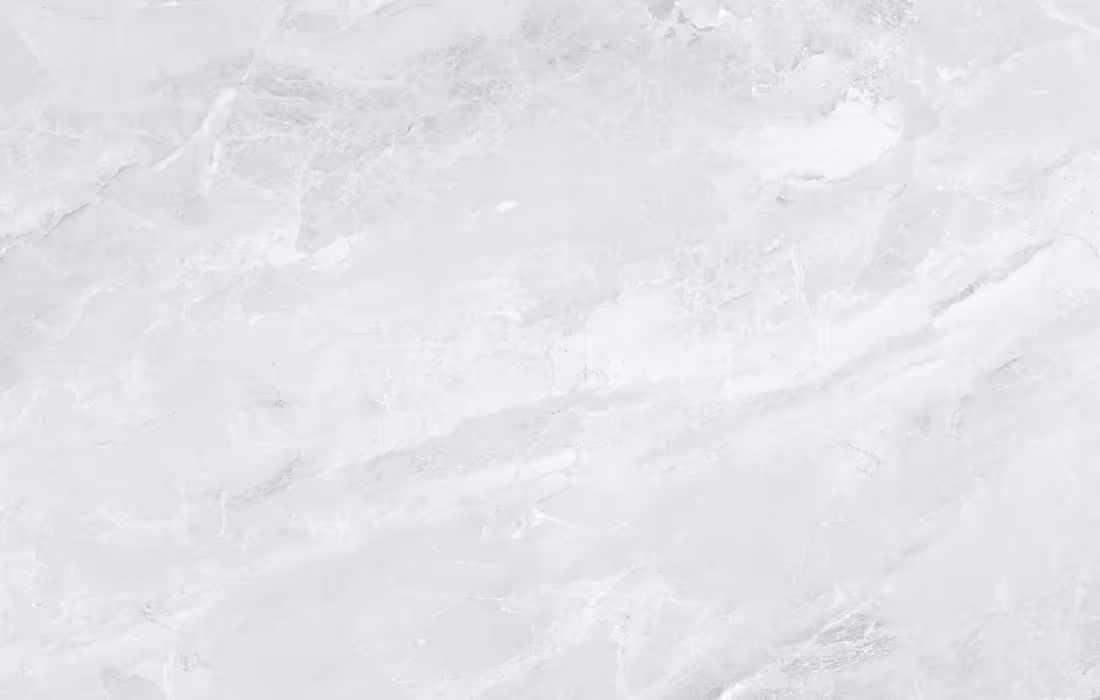
- Stunning beauty: Boasts a timeless elegance and beauty that can transform any space.
Cons:
- Porosity: Highly porous and easily stained by food, liquids, and even acidic rain.
- Weather susceptibility: Can be damaged by harsh weather conditions like frost, rain, and sun exposure.
- High maintenance: Requires regular sealing and careful cleaning to maintain its beauty and prevent damage.
Travertine
Travertine is a type of limestone with a distinctive holey surface. While it can be beautiful, it's not the most practical choice for outdoor kitchens.
Pros:

- Unique appearance: The porous surface adds a rustic and textured look.
- Durability: Relatively strong and durable.
Cons:
- Slip hazard: Has a rough surface that can become slippery when wet.
- Maintenance: Requires regular cleaning and sealing, which can be time-consuming.
If you want to learn more about travertine and its beauty in outdoor landscaping check out our blog dedicated to this durable stone.
Onyx
Onyx is a translucent stone known for its vibrant colors and intricate patterns. However, it's too delicate and sensitive for outdoor environments.
Pros:
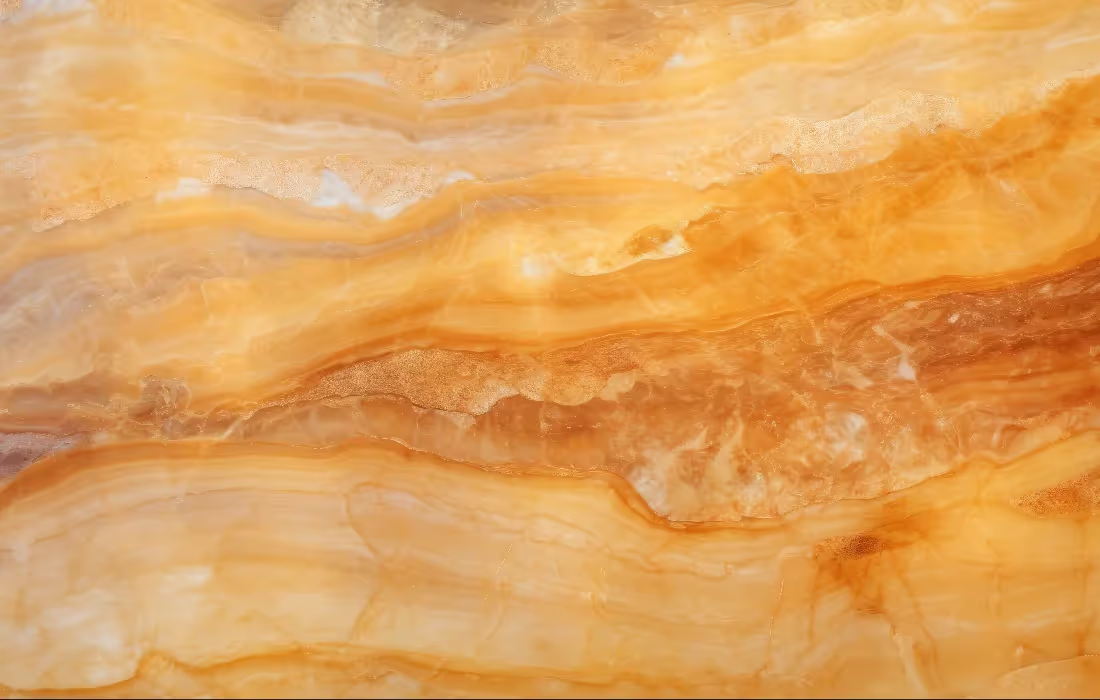
- Beautiful appearance: Adds a touch of elegance and sophistication to the architectural design.
- Translucency: Allows light to pass through and creates a mesmerizing effect.
Cons:
- Fragility: Brittle and easily damaged by impact.
- Weather sensitivity: Vulnerable to cracks and fading, and becomes discolored in harsh outdoor conditions.
- High maintenance: Requires constant care and cleaning to maintain its beauty.
Slate
Slate for its layered structure and earthy tones. While it's often used outdoors, it's not ideal for outdoor kitchen countertops due to its uneven surface and potential for staining.
Pros:

- Durability: Strong and durable, resistant to scratches and wear.
- Variety: Comes in various colors and textures, adding a natural touch to outdoor spaces.
Cons:
- Uneven surface: Has rough surface can make it difficult to clean and maintain, especially in food preparation areas.
- Porosity: Can absorb liquids and stains, requiring regular sealing.
- Slip hazard: Becomes slippery when wet and poses a safety risk in outdoor kitchens.
If you want to learn more about this natural material or ever wondered how different it is from another option for landscaping flagstone, visit our blog that explains the differences between slate and flagstone.
Cost of Outdoor Kitchen Natural Stones (Price per Square Foot)
Choosing the perfect stone isn’t just about aesthetics or durability; cost is another critical factor to consider. To help you make an informed decision, here’s a cost comparison of the most popular outdoor kitchen stones:
*Approximate cost according to HomeAdvisor
Final Thoughts
We've explored a range of natural stones, each with unique pros and cons. But what are some of our final takeaways? Let's summarize what you should know:
- Quartzite, the most durable option, offers stunning aesthetics and requires minimal maintenance, but its high cost may be a deterrent.
- While granite is a popular choice for outdoor kitchens due to its durability, limestone offers a compelling alternative. While both are beautiful and weather-resistant, limestone's warm tones and natural textures create a more inviting and rustic ambiance. Additionally, limestone requires less maintenance than granite, as it's less prone to staining and etching.
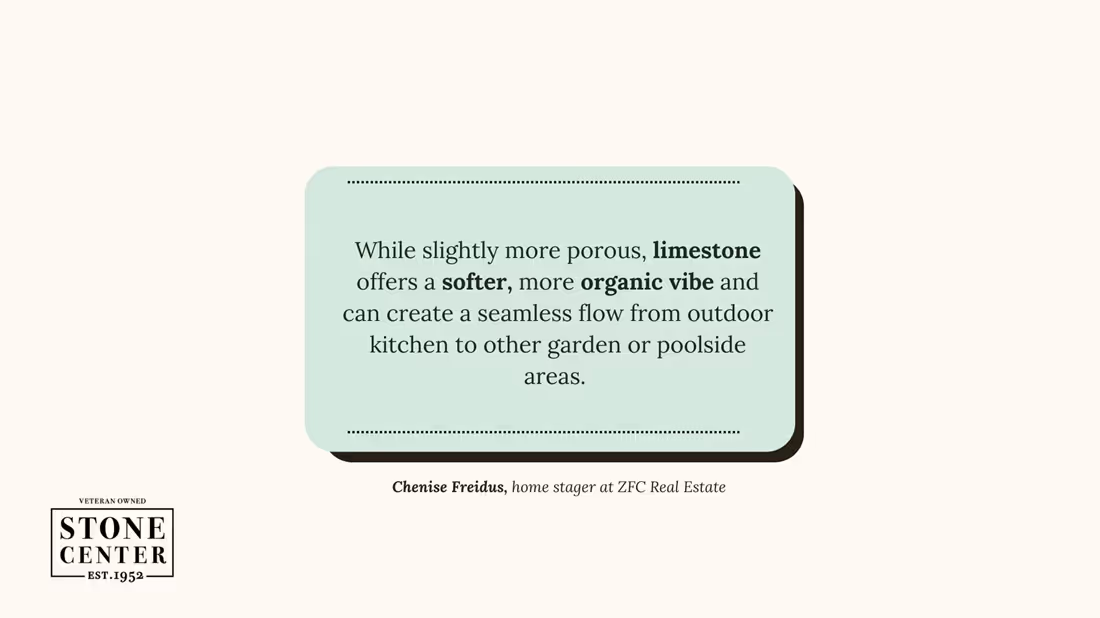
- Soapstone, with its soft velvety texture and natural heat resistance, is perfect for outdoor kitchens with grills or ovens. However, its porous nature necessitates regular sealing to prevent staining.
- Sandstone, known for its natural beauty and weather resistance, offers a rustic charm and requires less maintenance than soapstone.
- Don't forget that some natural stone options are not advised for outdoor kitchens, including onyx, marble, slate, and travertine.
There is no right or wrong answer; ultimately, the choice depends on your budget, desired aesthetic, and desired level of maintenance.
If you’re having trouble making the right decision, you don’t have to go through this process alone. Stone Center is here to guide you through the process, from selecting the right stone to ensuring its proper installation and maintenance. We offer expert advice, a wide range of services, and high-quality natural stones to make your outdoor kitchen dreams a reality.
Ready to create a stunning and functional outdoor kitchen that you'll enjoy for years to come? Contact us today for a free consultation!
FAQ
.avif)
Jon, the owner of Stone Center, is a knowledgeable expert in natural stone products, specializing in various types of stone for landscaping and architectural projects. Passionate about promoting the beauty and versatility of natural stone, Jon aims to use these blogs to inspire readers with creative ideas to upgrade their homes.
How much does it cost to get a stone restored?
How much you end up spending to restore stone varies on the type of stone, the technique, and the stone’s current condition. Stone in good condition will cost less to restore, whereas stone that has a lot of wear and tear may require a longer restoration.




